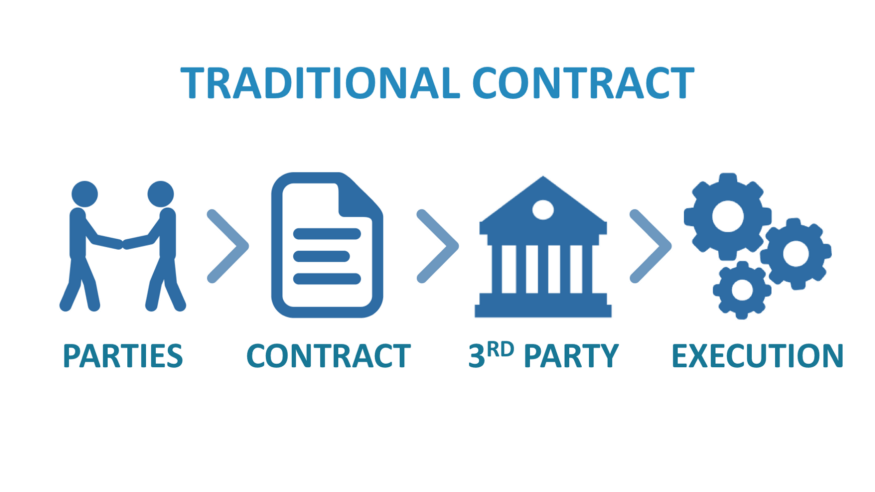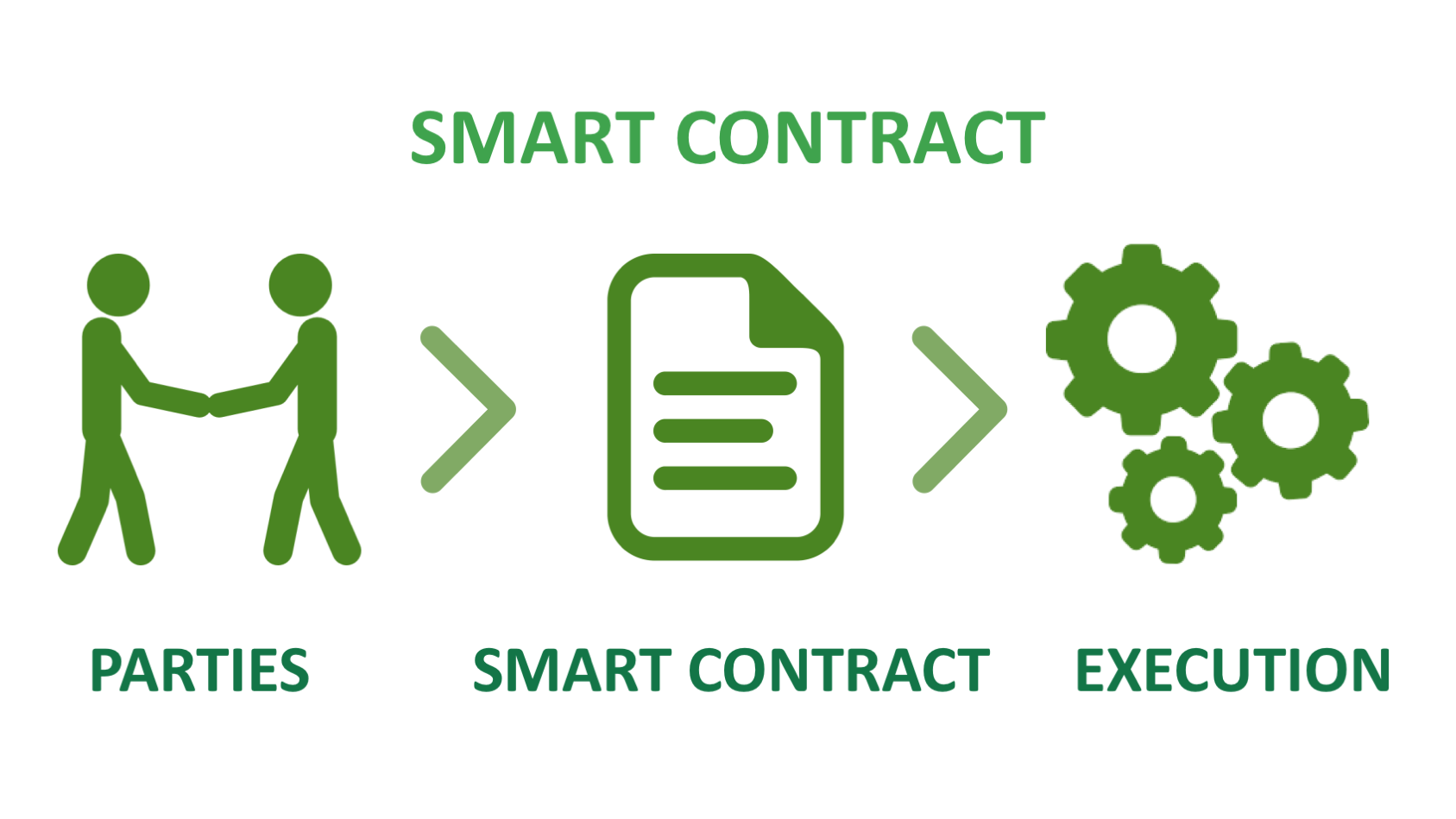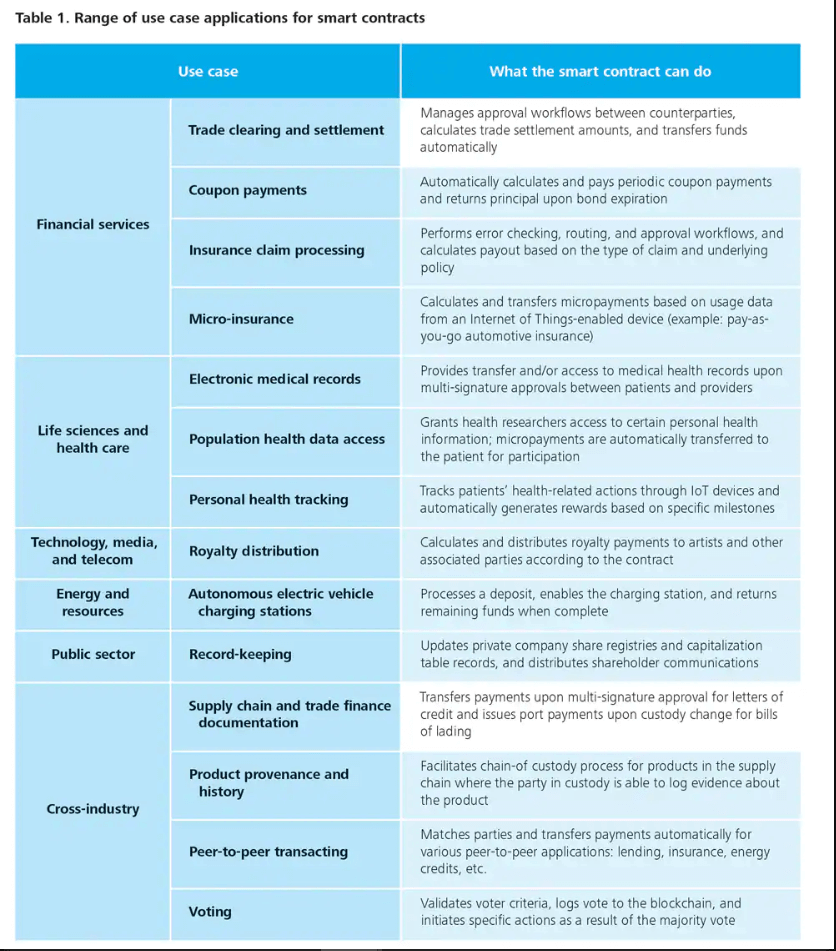The future of contracts: understanding smart contracts
Discover how smart contracts revolutionize business: Automate agreements, cut costs, boost efficiency. Learn more!
While smart contracts automate agreements on the blockchain, most business automation starts with simpler workflow solutions. Here is how we approach workflow automation.
Workflow Automation Software Made Easy & Simple
Summary
- Self-executing agreements without intermediaries - Smart contracts are computer code that automatically executes when conditions are met, eliminating lawyers, banks, and escrow agents. Like vending machines (Nick Szabo’s 1994 analogy), they control digital assets directly and verify both parties’ requirements before executing transactions
- Run on Ethereum blockchain network launched 2015 - While Bitcoin (2009) trades currency, Ethereum enables users to program smart contracts using its coding language. Blockchain’s decentralized public ledger makes all transactions viewable, eliminating fraud since participants can verify blocks without central authority
- Applications span banking, real estate, insurance, and trade - Mortgages eliminate realtor fees, escrow saves 2% property charges, medical research shares data while protecting privacy, trade finance removes third-party intermediaries, insurance cuts fraud while saving billions. Smart contract coders charge $90-$200+ per hour for this emerging service
- Environmental concerns with Bitcoin mining - Bitcoin network’s carbon emissions equal 2.36 million cars annually because decentralized mining requires thousands of computers solving complex math problems. China’s hydroelectric-powered operations help, but energy consumption remains the main critique. Schedule a chat about automation
Technology automation discussions with mid-market teams often include questions about emerging tools. In our conversations with operations leaders at financial services and investment firms, we hear consistent interest in how blockchain and smart contracts might transform their deal execution and compliance workflows. Nowadays it seems like everyone is throwing around terms such as “blockchain”, “bitcoin”, “ethereum”, “smart contracts”, etc. These have become buzzwords, and oftentimes the people spouting these words do not truly understand what they are.
In order to provide an introduction to smart contracts, and give clarity to these other buzzwords, the following timeline was made: In 2009, Bitcoin was launched. This first virtual currency was introduced by the anonymous founder(s) who took the name Satoshi Nakamoto. Bitcoin operates in a decentralized network between parties in which the virtual currency is transferred and authenticated by the network and its users.
Shortly after the explosion of Bitcoin, blockchain technology was discovered by looking into what drives the Bitcoin network. Blockchain is the general term that describes the decentralized public ledger of all transactions executed.
“Decentralized” is a term that gets thrown around a lot when talking about blockchain. Basically it means that there is no controlling entity for the system. For example, for the United States currency, the Federal Reserve is the controlling entity behind it; the Fed controls how much cash is circulating, how much the banks have, and how high the interest rates are.
For the US, the currency system is “centralized” because the Fed controls it. In a centralized system like this, the people have to trust that the controlling entity (the Fed in this case) is operating without dishonesty.
In a “decentralized” system like the Bitcoin network, all of the transactions are public and viewable. Therefore the possibility for fraud is eliminated since all participants have access to view and verify the “blocks” (transactions) in the chain. Since the transactions are public, there is no need for a central controlling entity.
People realized that this blockchain technology could be applied to a plethora of different industries, not just Bitcoin. So where do smart contracts come in?
In 2015, Ethereum was launched. Ethereum is another decentralized network like Bitcoin, but instead of trading Bitcoin, Ether is traded. However, the key difference between the Bitcoin network and Ethereum network is that Ethereum enables users to program smart contracts.
All of the transactions between participants on the Ethereum platform use smart contracts which are programmed by participants using the Ethereum coding language.
What are smart contracts?
Smart contracts are self-executing agreements with the terms between the parties written in the computer code itself. Smart contracts get rid of the need for intermediaries. The smart contract ensures that transactions between parties meet the requirements of both sides, otherwise they will not execute and the transaction will not take place.

 Source
Source
Analogy
Nick Szabo came up with the concept of a smart contract in 1994, far before the immersion of blockchain technology. He proposed the following analogy to help give clarity to the idea of a smart contract.
A smart contract is similar to a vending machine. The vending machine is a device that adheres to the following rules: You put in $1.50, a soda of your choice comes out. You put in less than $1.50 (or nothing), and no soda comes out.
The vending machine has these rules coded in itself and protects the soda bottles (does not dispense them) if the required fee is not paid. The concept of a smart contract is much like a vending machine.
Smart contracts are computer programs that allocate digital assets (such as cryptocurrencies) if the conditions of an agreement are met. The important distinction here, and really what makes smart contracts so useful, is that they directly control assets. Smart contracts are coded to verify that the conditions of an agreement are met for both parties.
When the conditions are met, the smart contract does not recommend (to a human) that the transaction should take place. Instead, it sees that the conditions have been met, and automatically sets the transaction in motion.
This is why smart contracts are so innovative; they automate deals and eliminate the need for an intermediary such as a lawyer or a bank. It’s truly a “smart” way to complete transactions.
How do smart contracts relate to blockchain?
The idea of smart contracts came before the idea of blockchain (2008). However, now that blockchain is becoming widely integrated, smart contracts are easily the most utilized application of blockchain technology.
Before blockchain, Szabo’s concept of the smart contract had little real-life application, and was simply an idea. However, with the explosion of blockchain technology, it is easy to see how smart contracts are becoming more and more important. The real-life uses of smart contracts are increasing in tandem with the growth of blockchain because smart contracts are directly integrated in blockchain networks such as Ethereum.
Examples of blockchain and smart contract application
Spotify: Spotify bought the blockchain startup “Mediachain Labs” in order to use a decentralized database to better connect artists and licensing agreements. IBM: Blockchain integrated in supply chains allows transparency because of the shared record of transactions in a network.
Incorporating smart contracts and block chain in their supply chain operations allows IBM to keep track of materials and orders in real time without chance for error. Food: Complex supplier-buyer pathways in the food industry make it difficult to track down the source of food-borne illnesses. Blockchain will improve the ability to figure out where along the supply chain food was contaminated.
Banking
Smart contracts have many applications in the financial world. For example, smart contracts can automate interactions between a lender and a borrower for a loan. Also, smart contracts could smoothly execute transactions between buyers and sellers in the stock market saving loads of energy
Mortgages
The mortgage industry will be reformed by blockchain and smart contracts. Buyers and sellers will be easily connected automatically in the blockchain network.
Smart contracts will govern all of the specifications of the real estate transaction. This will eliminate the need for lawyers and realtors. This change will make these types of deals more efficient, saving money and time for both parties.
Escrow
The escrow industry is worth billions; real estate escrows, for instance, charge a fee of 2 percent of the (purchased) property value in order to hold and secure purchase funds until the conditions of the deal are satisfied. This is a service that can be directly replaced with the implementation of smart contracts.
Instead of using escrows in real estate purchases, the new system would look a little different. The buyer would buy virtual tokens (Ether or Bitcoin) and send them to a location on the blockchain network. The tokens remain at that address until the computer programmed smart contract validates that all the required conditions in the purchase deal have been met.
These conditions could include: entering information on the deed, or uploading a pdf of a house inspection certificate or a signed deal contract. When the deal has all of the required elements that the smart contract calls for, the funds are automatically released to the seller party, who is able to exchange them into actual currency.
The convoluted escrow process, and need for a middle man in real estate transactions, disappears and becomes automated with the implementation of smart contracts.
Medical research
For medical doctors and PhDs actively conducting research, sharing data and collaborating between various hospitals freely and openly is a benefit smart contracts can create. New discoveries can be easily communicated without disclosing the personal information of the subjects who took part in the study.
Trade finance
Smart contracts transform the way international goods are traded by improving and streamlining the exchange of funds in the transaction. Smart contracts help to make international trades more efficient by allowing the two parties to enter a direct agreement with each other, eliminating the need for one party to park their money with a third party intermediary. Trust is easier between the two parties because the smart contract makes the transaction unbreakable.
Insurance
Smart contracts will make the relationship between insurance companies and customers smooth. Based on hundreds of implementations we have observed in financial services, the appetite for automated verification and audit trails is enormous. With the use of smart contracts, both sides and come into an agreement without the need for verification from lawyers or notaries.
This elimination of labor would save billions, and this cost benefit will eventually trickle down to the consumer. This system would decrease the possibility of fraud, and make court settlements much more black and white. Unfortunately for scammers (but fortunately for honest people!), a decentralized public blockchain network utilizing smart contracts will make it much much harder to defraud people and go unnoticed.
Online advertisements
The manager of an online shop or another type of website could set up a smart contract that would automatically pay marketers if their advertisements have success. For instance, the marketer that published the advertisement for the online shop would create an Ethereum or Bitcoin account with an amount of funds in it and link it to a smart contract written with if/then conditions. For example, if an internet browser comes across the advertisement and clicks it, and that click results in a sale on the online shop, then the Ethereum account would release a set fee (a couple dollars worth) to the marketer’s account.
Emerging industry: smart contract service
With the exponential growth in blockchain and smart contracts on the horizon, a completely new market and breed of startups are starting to develop. The business of making smart contracts for other people/businesses is a new idea but has a lot of computer programmers looking to get into it.
Businesses looking to implement smart contracts for their transactions can hire outsourced coders to code their own customized smart contracts. There are traditional freelance websites such as “CodeMentor” that list coders who can write smart contracts and are offering their services for a fee. It is sort of like Craigslist, but for smart contracts.
Some websites are doing even more, and actually specializing in the smart contract programming business itself. Companies like “Dream” and “Ethlance” only hire developers who specialize in smart contracts and the blockchain with the goal of connecting them to businesses looking to implement smart contracts.
It is a very new industry, and the barriers to entry is relatively high, but fees to smart contract developers range from $90 per hour to well over $200. On the customer side, all you have to do is figure out what transactions you want to automate using smart contracts, determine the savings (monetary or not) that this automation will bring to the business, and ask one of these developers how much they would charge to create this custom smart contract. From there, you just need to crunch the numbers and decide if it is worth it.
The technical literacy required to code a smart contract is highly valuable, and will become more and more marketable as this technology continues to disrupt industries around the world.
What other applications do smart contracts have?
Other smart contract uses include but are not limited to:
- Digital rights
- Wagers
- Crowdfunding

Potential of blockchain and smart contracts
In our experience at Tallyfy studying emerging technologies, the future potential of smart contracts is vast. That’s not hyperbole. While the current applications of this technology are still being utilized at a fairly small scale, extremely large scale applications are probably possible as we continue to progress.
Smart contracts, at the most fundamental level, are agreements. A business, for example, at the most fundamental level, is simply a collection of agreements made in the past, being made currently, and to be made in the future. Sales to customers, approvals between employees, purchases from suppliers, and other expenses all have the potential to be automated on the blockchain via smart contracts.
The final form of automating businesses with smart contracts is the creation of fully-automated businesses, which are an example of a DAO (distributed autonomous organization). All processes and business operations are completely automated, and the organization itself operates without need for human intervention.
The actual business itself would just be a collection of smart contracts. While DAOs exist today, most are very small and limited in scope. For a DAO to be functional on a large scale, blockchain technology would have to be more integrated into society and a higher degree of societal automation would have to be in place.
Completely automated governments and societies are what lie beyond the potential of DAOs. An automated government would be similar to a DAO, except in this case government services are automated, compared to business processes.
Energy use and environmental implications of blockchain
The major problem for the blockchain based cryptocurrency, Bitcoin, is the astronomical environmental impact the network has. The Bitcoin network uses so much energy, that the carbon emissions associated with Bitcoin is equal to the emissions from 2.36 million cars annually.
The Bitcoin network requires so much energy because of its mining process. Bitcoin “mining”, as it is called, involves computers in the network trying to solve complex math problems to receive a fragment of a coin. The answer found by the computer is then instantaneously checked by the network, which also takes loads of energy.
It is intuitive as to why the Bitcoin network requires so much energy to be powered. It is a decentralized network; it takes much more energy to power a network with thousands of “headquarters” than to power a network with one or a few “headquarters”.
Some efforts are being taken to reduce the carbon emissions associated with Bitcoin. For example, in China, a lot of mining operations are being powered by renewable hydroelectric dams. The massive environmental impacts are linked more to cryptocurrencies, and less to blockchain in general.
The sheer scale of cryptocurrencies only serve to enlarge their carbon footprint; comparatively, smaller blockchain networks would have little environmental consequence. All in all, energy consumption has been the main critique for the Bitcoin system.
However, Bitcoin was the first real-life application for blockchain, and it is expected that newer blockchain technologies that are not so environmentally detrimental are on the horizon.
”The blockchain technology that will replace lawyers”…not quite
Bottom line
The smart contract technology has garnered a lot of hype over the past couple years, but smart contracts still need a lot of time to develop. People seem to think that smart contracts and blockchain will change the way we do everything.
This type of future may be on the horizon, but presently, smart contracts are simply an innovative concept that have many potential applications. The key word here is potential. It’s not accurate to make blanket statements such as “smart contracts will replace all lawyers”.
This simply isn’t the case. Smart contracts, at their core, aren’t “smart” like a human.
They do increase efficiency. They are computer programs and save a lot of time, yes, but when it comes to issues such as breach of contract agreements, a real human lawyer and judge will need to determine what rules were broken. With many massive companies turning to blockchain technology, it is clear that smart contracts will come to play an important role in how transactions take place in the future, but the scope of smart contract uses is limited by what industries choose to use them.
If you are looking to use Tallyfy to run smart contracts - we have an open API that enables you to do so. Please schedule a chat with us!
About the Author
Amit is the CEO of Tallyfy. He is a workflow expert and specializes in process automation and the next generation of business process management in the post-flowchart age. He has decades of consulting experience in task and workflow automation, continuous improvement (all the flavors) and AI-driven workflows for small and large companies. Amit did a Computer Science degree at the University of Bath and moved from the UK to St. Louis, MO in 2014. He loves watching American robins and their nesting behaviors!
Follow Amit on his website, LinkedIn, Facebook, Reddit, X (Twitter) or YouTube.

Automate your workflows with Tallyfy
Stop chasing status updates. Track and automate your processes in one place.